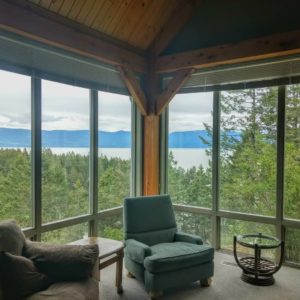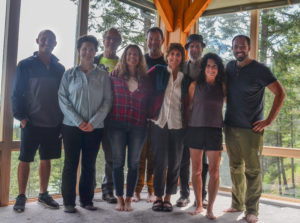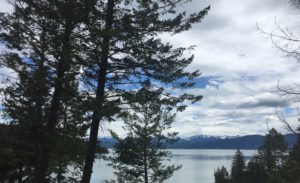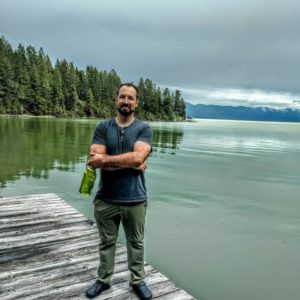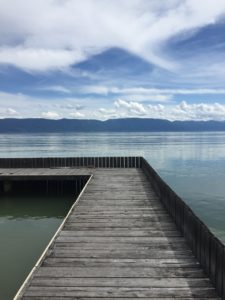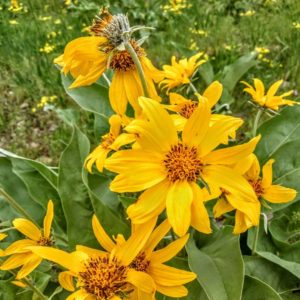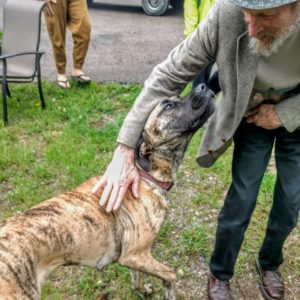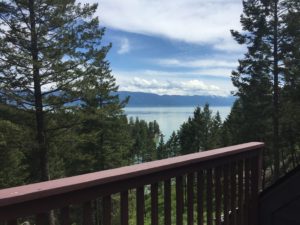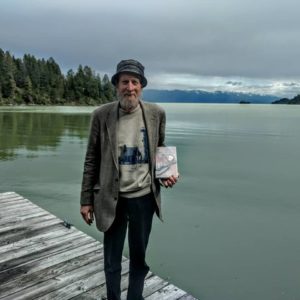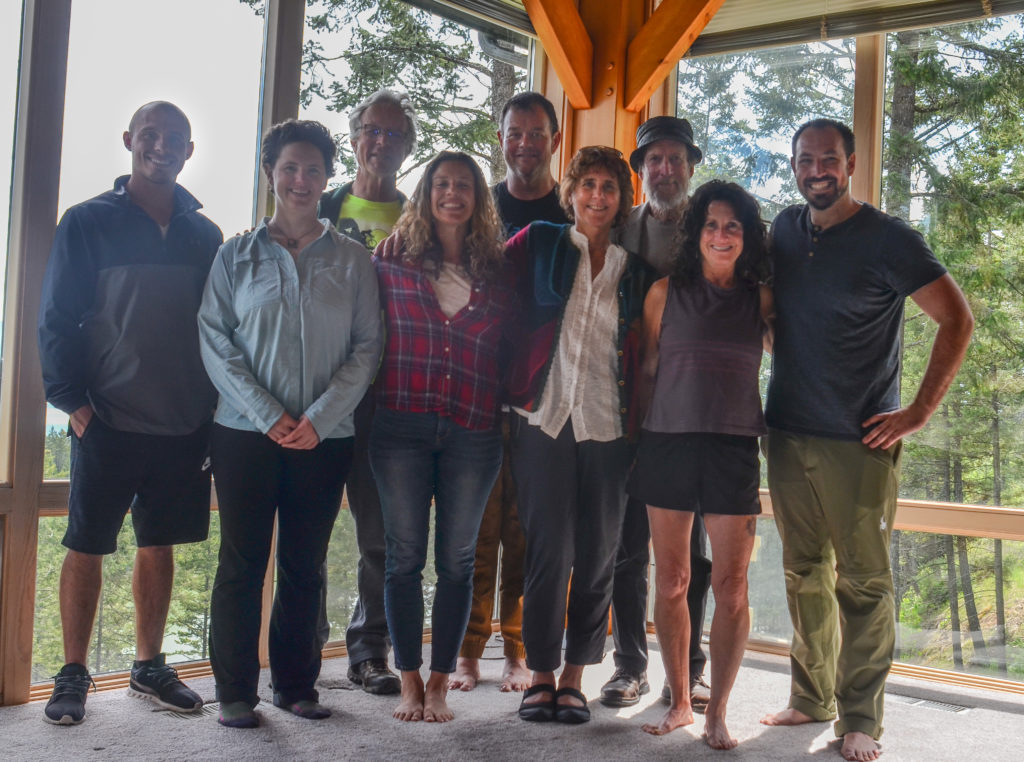 Our Spring 2018 Silent Weekend Retreat at Deep Bay Center on Flathead Lake was magical. Mother Nature gifted us in so many ways. The weather and views were beautiful…and very much in keeping with the hearts and kindness of our retreat-goers.
Our Spring 2018 Silent Weekend Retreat at Deep Bay Center on Flathead Lake was magical. Mother Nature gifted us in so many ways. The weather and views were beautiful…and very much in keeping with the hearts and kindness of our retreat-goers.
Included below are some retreat reflections and a not from our retreat guide, a consolidated list of helpful resources (including guided meditations and materials), and retreat photos. We will keep this page live and active for all retreat participants (and community members). Namaste.
Thank you so much to our retreatants — Reg, Kim, David, Julie, Josh, Marie, Chris, and Rhonda — for allowing us the opportunity to be of service and to grow. It was an honor. — Marisa & Justin
Retreat Reflections
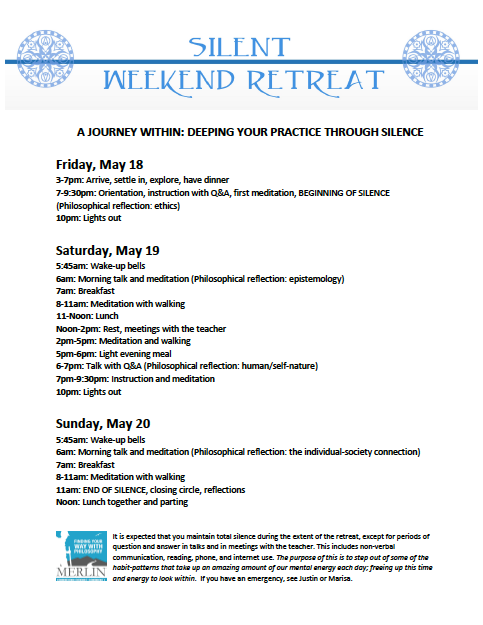 The purpose of silence as a practice is to allow the mind to quiet down and focus, free of distractions. To help facilitate this, our weekend was technology-free and as minimalist in nature as possible. ‘Mindfulness of breathing’ and ‘loving-kindness meditations’ were emphasized, as well several opportunities for walking meditations. In addition, and in keeping with the theme of our organization, guided philosophical reflection was also incorporated over the course of the weekend, as well as small break-out reflection sessions with Justin. Some of the philosophical areas we explored included:
The purpose of silence as a practice is to allow the mind to quiet down and focus, free of distractions. To help facilitate this, our weekend was technology-free and as minimalist in nature as possible. ‘Mindfulness of breathing’ and ‘loving-kindness meditations’ were emphasized, as well several opportunities for walking meditations. In addition, and in keeping with the theme of our organization, guided philosophical reflection was also incorporated over the course of the weekend, as well as small break-out reflection sessions with Justin. Some of the philosophical areas we explored included:
- Ethics — How our actions in life affect our minds and meditation
- Epistemology — Questioning the extent of our knowledge and the ways we know both ourselves and the world around us
- Human Nature — Who or what we are deep down
- Social Philosophy — How we’re shaped by and in turn shape the world around us
The close of our retreat was marked by a shared lunch (with bread and cheese — thanks Justin!), reflections, and of course a group photo commemorating our maiden journey together!
A Note from the Teacher
My thanks again to all of you for being a part of the inaugural mindfulness and philosophy retreat. I hope the transition back to daily life was smooth but that elements of the retreat have managed to stay with you – such as a habit of stopping and breathing, letting the mind fall on the breath for an inhale and an exhale or two, any time distractions, anxieties, or cravings arise. As we go forward, it’s helpful to remember that the early Buddhist term for ‘meditation’ (bhavana) actually means ‘cultivation’. As with other things in life, cultivation takes time, patience, repeated effort. And, like other things, eventually the sense of ‘effort’ drops away as meditation becomes a habit, and the need for patience drops away as the rewards arise and increase. But there is still always the maintenance and growth that requires our time and continued practice. And keeping up that practice is almost always easier with a group for support and sharing so I would recommend finding a group of meditators in your area (or starting one). That process, too, can be tricky and requires another level of effort and patience. — Justin
Guided Meditations (Led by Justin)
9-Minute Guided Meditation
Loving-Kindness Meditation
Gratitude Meditation
Meditation for Anxiety
Meditation for Restlessness or Difficulty Sleeping
Mindfulness for Fear or Pain Meditation
Guided Meditations (Led by Others)
- 5-Minute Breathing Meditation
- 9-Minute Loving-Kindness Meditation
- 10-Minute Mindfulness of Breathing Meditation
Non-Guided Meditation
Visual Guide
- Visual Guide for Returning to Breath
- A great visual guide to Buddhism can be found in Kevin Trainor’s Buddhism: The Illustrated Guide.
Reading Resources (Practice)
- No Self, No Problem: Awakening to Our True Nature (Anam Thubten) — A wonderful resource referenced at our retreat about how we might realize the ultimate meaning of life in each moment by dissolving all notions of ego identity.
- Mindfulness in Plain English (Henepola Gunaratana) — A classic book on straight-forward mindfulness and insight practice
- Right Concentration: A Practical Guide to the Jhanas (Leigh Brasington)
- The Mind Illuminated (Culadasa / John Yates) – A systematic guide to mindfulness from a neuroscientist turned meditation teacher
- Full Catastrophe Living (Jon Kabat-Zinn) – An excellent guide to stress, anxiety, the body, pain, and mindfulness practices.
- Buddha’s Brain: The Practical Neuroscience of Happiness, Love, and Wisdom (Rick Hanson)
For some additional writing and thought, check out the works of Sharon Salzberg, Joseph Goldstein, Joan Halifax, Matthew Flickstein, Jack Kornfield, Pema Chodron, Thich Nhat Hanh, and the Dalai Lama. There are many different and wonderful voices, it’s just a matter of finding the writer who speaks to you and going forward from there.
Academic Guides to Buddhism
- The Foundations of Buddhism (Rupert Gethin)
- Buddhist Thought: A Complete Introduction to the Indian Tradition (Paul Williams)
- This in many ways picks up where Gethin’s work leaves off, taking us through the development of early Buddhism, some of the main schools and their ideas, and on into the Mahayana and the development of Tantra.
- Mahāyāna Buddhism: The Doctrinal Foundations (Paul Willams)
Thank you to Deep Bay Center for giving us the opportunity to hold our retreat in such a stunningly beautiful, serene and peaceful location!

